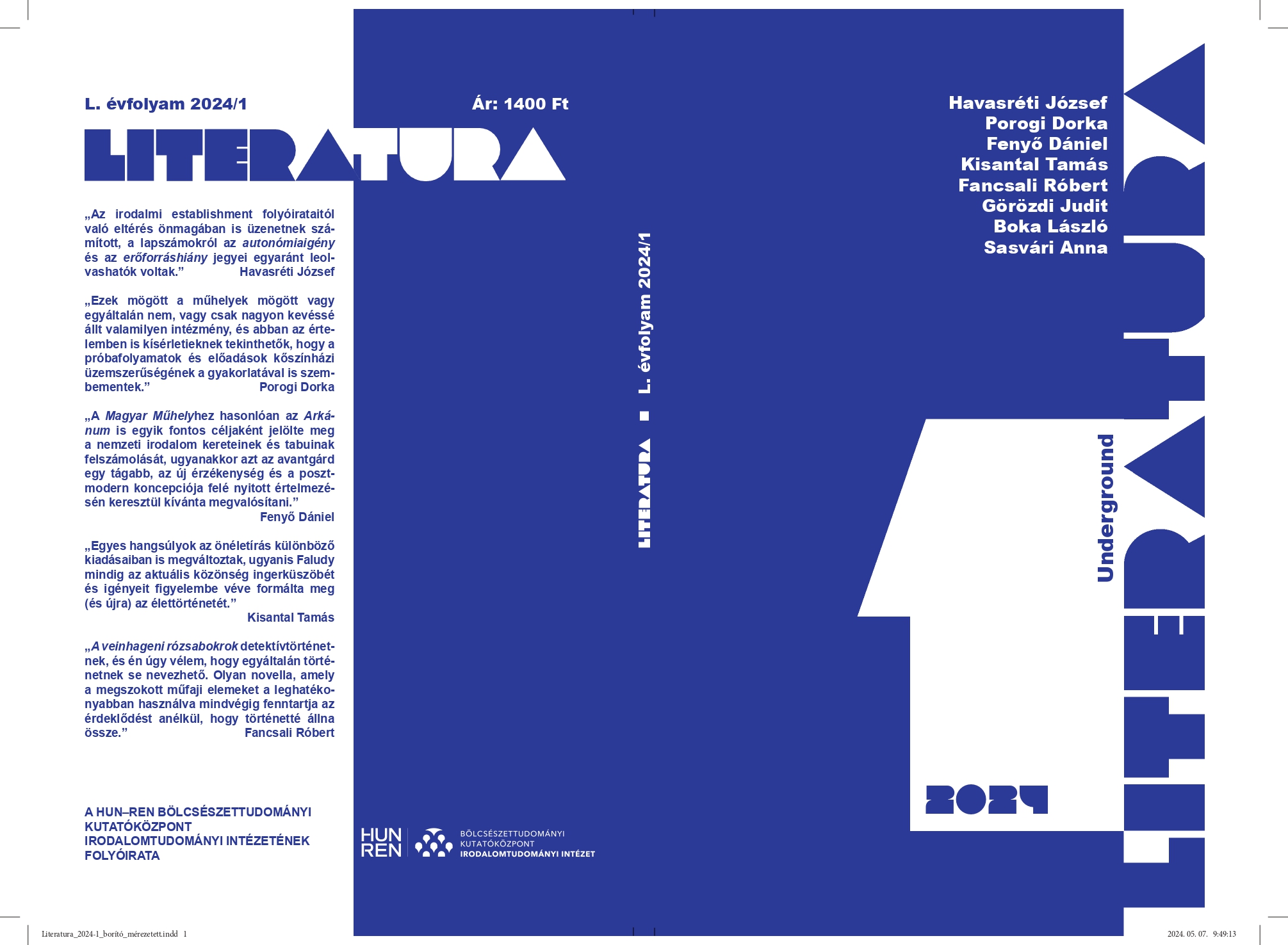“…It is not Just Me Who is Writing the Poem, but I am Its Manuscript as Well”
– History and Identity in the Works of György Faludy –
Abstract
The essay examines the identity formed in György Faludy’s autobiographical work, Pokolbéli víg napjaim [My Happy Days in Hell]. The other main question is why a massive cult formed around the book and its author in the late 1980s and the 1990s and what caused it to be forgotten later. It claims that Pokolbéli víg napjaim [My Happy Days in Hell] presented a kind of identity model and interpretation of history that fit well with the social and cultural expectations in late 1980s Hungary during the fall of communism. Using an anecdotal and picaresque-like style in portraying the communist dictatorship, the book shows the possibility of an autonomic, self-fulfilled, independent persona. The same concept of identity crystallized from the beginning of Faludy’s career as a poet, writer, and translator. My essay focuses on narrative and fictional devices by which Faludy built his image and the historical concept implied by this identity construction.



